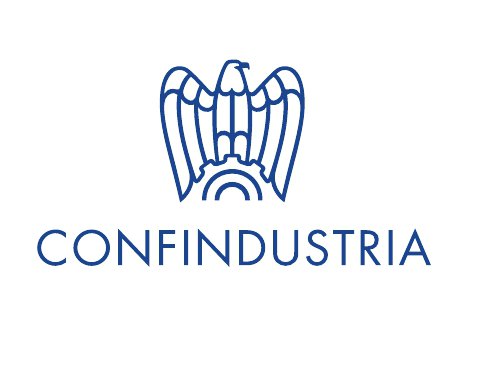Supply problems have plagued the retail sector this year, forcing Walmart and Target with full warehouses to cut orders, for example. Adidas cuts its forecast for the year in a sign of growing uncertainty. The US will enter recession this year. Ukraine, Russia and the United Kingdom already are. The IMF confirms that global growth will slow to 2.7% next year, down from 3.2% this year and 6% in 2021. ['Worst Is Yet to Come' for Retailers Facing Recession – SJ]
Bankruptcies could pile up in the retail sector in the months ahead, according to BDO restructuring expert David Berliner.
Several names in fashion and home have already run into financial trouble or seem to be flirting with a bankruptcy filing.
A renovation last year couldn’t prevent 66-year-old family-owned home goods retailer Rotmans from closing its doors when CEO Steve Rotman announcement his retirement this month. In July, Altmeyer Home Stores filed for bankruptcy Chapter 7 and liquidated. Olympia Sports’ Chapter 11 bankruptcy liquidated inventory and closed all 35 stores.
A continent away, a court-ordered shutdown distributed Camaïeu’s assets to pay the 40-year-old French retailer’s 240 million euro ($235 million) debt. Men’s wear specialist TM Lewin and Steptronic Footwear Ltd both collapsed in the UK earlier this year.
Bed Bath & Beyond is seen as a likely bankruptcy candidate after mounting problems and consecutive double-digit quarterly losses. Factors and other credit-checking insiders that advise vendors on whether to ship goods don’t like the Union, N.J. company’s “history of holding up payments” to suppliers. At this point vendors distribute product at their own risk now that factors are giving Bed Bath & Beyond the cold shoulder.
Still, there might be a glimmer of hope for the retailer and its self-inflicted Sisyphyean struggle, especially if a bustling holiday season delivers healthy quarterly sales. As the nation’s sole remaining big-box home chain, vendors might have a vested interest in supporting Bed Bath & Beyond’s survival, said one retail credit analyst, noting the unwelcome prospect of suppliers losing a major account.
In fashion, sources said Rue21 hired Ducera Partners to help raise financing and avoid a second Chapter 11 since 2017. A credit checking analyst who asked to remain anonymous said a dividend payment to new owners squeezed the teen retailer’s liquidity. Strong sales in 2020 and 2021 gave way to merchandising missteps earlier this year, this analyst said. Trouble escalated when Rue21 secured a “big term loan” that left its balance sheet more leveraged than it was before its bankruptcy five years ago, said a retail executive familiar with the teen sector. The move came at the “wrong time” now that people are cutting back on spending.
Lenders are tightening the purse strings, too. S&P Global Ratings sees “potential for higher credit stress in late 2022 and early 2023, and beyond,” it said in a report earlier this month.
An August S&P report analyzing credit trends branded 46 issuers as Outlook/Credit Watch Negative for the highest new potential downgrades since July 2020. Eleven were in the U.S. consumer product sector, it added.
Supply problems have plagued the sector this year, forcing retailers from Walmart to Target to slash orders and prices and stuff overstock into overflowing warehouses. Adidas is just the latest in a string of companies cutting their outlook for the year in a sign of escalating uncertainty.
Most economists expect the U.S. will tip into a “mild” recession this year that could drag on for some time. Ukraine, Russia and the U.K. are already believed to be in recessionary territory and other economies could follow. The International Money Fund earlier this month said global growth will slow to 2.7 percent next year, down from 3.2 percent this year, and 6 percent in 2021.
“The worst is yet to come, and for many people 2023 will feel like a recession,” it said.
Second-quarter retail and wholesale insolvencies in England and Wales totaled 802, according to the UK’s Office for National Statistics. That’s the second highest since the 812 recorded in 2012’s first quarter.
Some experts don’t think bankruptcies will reach the heights seen in 2020 when at least four dozen fashion and retail companies worldwide collapsed and drove 11,060 store closures.
So far, 62 global companies have defaulted on debt this year, similar to 2021’s 61 year-to-date.
“We can expect the number of defaults to continue to rise for the remainder of 2022 amid worsening credit conditions, which could erode margins and limit lower-rated companies’ ability to access funding,” S&P Global Ratings.
According to data from the S&P Global Intelligence, the odds of a default across most U.S. business rose in the third quarter, with the exception of consumer discretionary’s flat score of 3.8 percent.
The group’s bankruptcy tracker showed 31 Chapter 11 filings in September, versus 38 in August. Consumer discretionary had the second-most filings so far this year, with 43 by the end of September.
British lifestyle and home retailer Joules could be the next named linked to bankruptcy. It’s been working with advisors to build a cash cushion, but needs the proverbial “Hail Mary” to swerve an insolvency. Investment talks with Next Plc in August for a 15 million pound ($18.2 million) lifeline fell through last month.
A recent regulatory filing showed that British multi-millionaire and Stoneacre Motive Group care dealership owner Richard Teatum controls an 8.9 percent stake in Joules behind founder Tom Joules’s 21.7 percent interest. The latter left in 2015, but returned last month to aid with a turnaround.
In a statement, Joules said it “continues to make good progress” on its profit-focused revival. It’s improving prices and reworking its promotional strategy while prioritizing profitable product categories it can produce with less lead time.
Joules hasn’t ruled out pursuing a company voluntary arrangement which would allow it repay creditors without the formal legal oversight of an administration.



